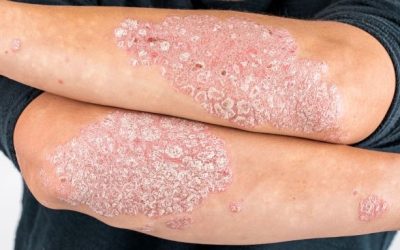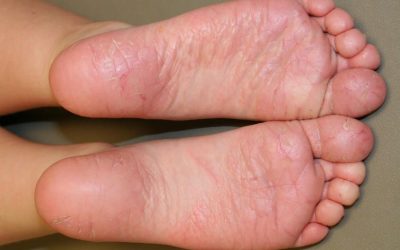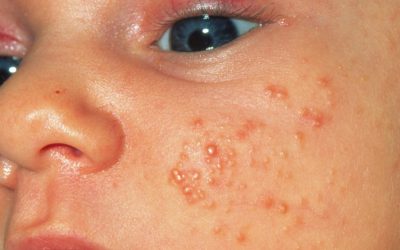Rosacea
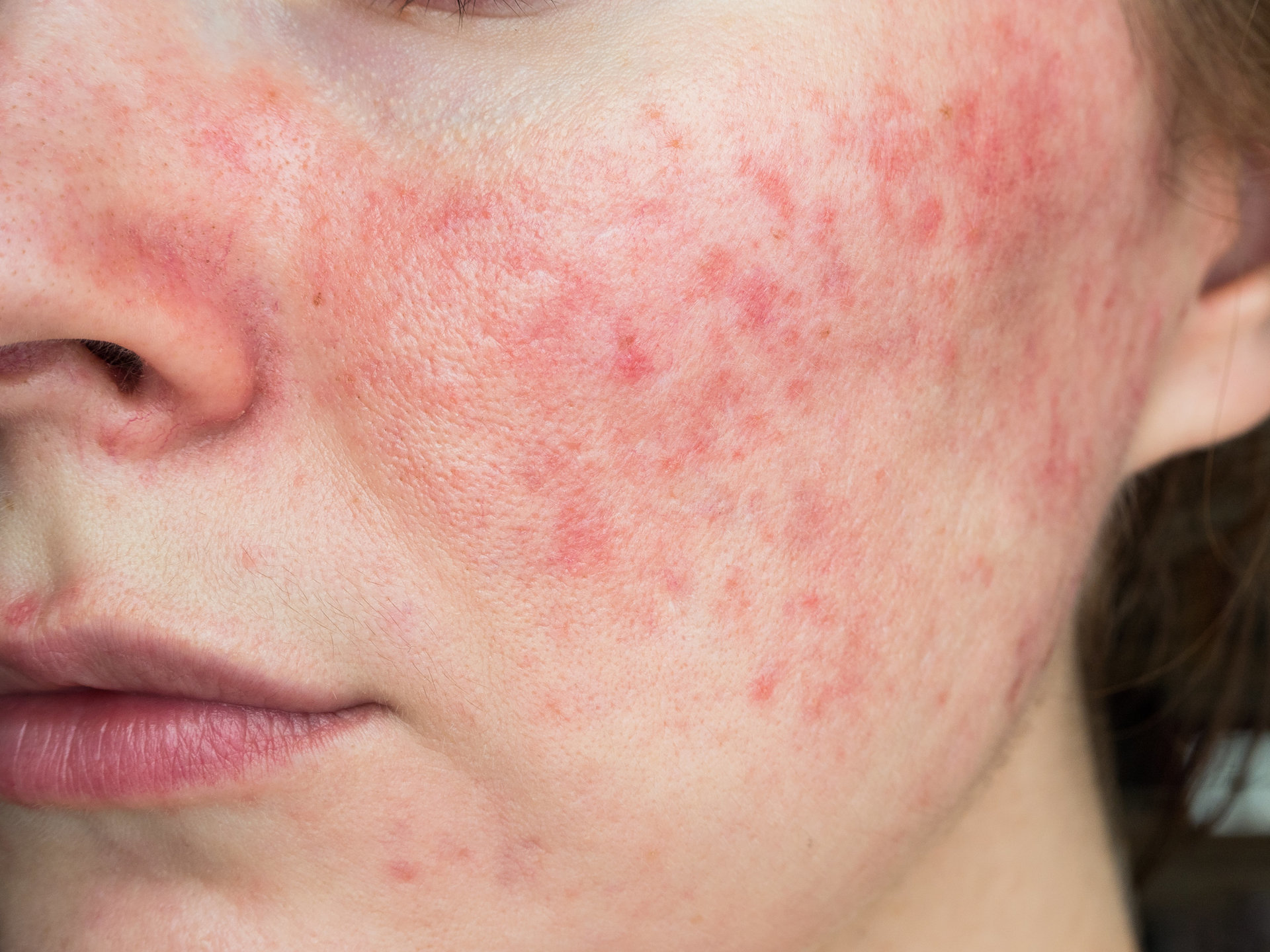
Rosacea is a chronic inflammatory, non-infectious skin disease that manifests redness and rashes on the forehead, cheeks, nose and chin, sometimes affecting the eyes.
Rosacea is caused by a combination of factors:
- more common in fair-skinned, blue-eyed people;
- genetic predisposition – more likely to have red cheeks if there is a family history of people with the disease;
- Environmental factors: sudden changes in ambient temperature (hot showers, sauna, hot tub, etc.), prolonged exposure to the sun without protective equipment;
- more common in people who experience prolonged severe stress;
- vasodilating foods that worsen the course of the disease (they do not cause the disease!!!): alcohol (especially red wine), spicy foods, very hot foods, heavy use of cinnamon etc.
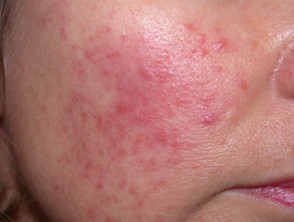
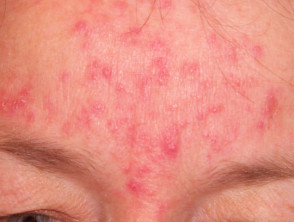
- persistent redness of the face (especially in the cheeks);
- prominent fine facial blood vessels – like pink stitches
cheeks; - a rash of red papules (‘pimples’);
- a stretching, dry sensation that is not relieved by applying cream;
- skin irritation, tingling, itching;
- scaling of reddened areas;
- enlarged couples
It is recommended to treat only when the disease is noticed, as it requires the least effort to control and does not make such much impact on your quality of life.

Psoriasis
A common, chronic, inflammatory, recurring skin disease that affects 2-3% of the population. Psoriasis can start at any age, and is most often found in adults.
Juvenile plantar dermatosis
a disease characterized by localized damage to the feet. JPD usually occurs in children between the ages of 3 and 14 who are prone to atopy or have atopic dermatitis
Skin Conditions in Newborns: Causes, Symptoms, and Care Tips
Skin conditions like rashes, eczema, and cradle cap are common in newborns. Proper skin care is essential for managing and preventing these issues. Learn how to care for your baby’s delicate skin and address common skin conditions effectively.
iDerma
MB iDerma
Fabijoniškės g. 99, Vilnius
+370 671 33323
[email protected]


